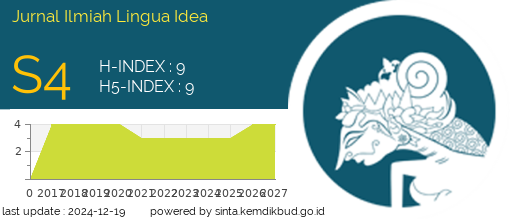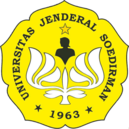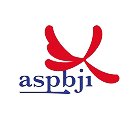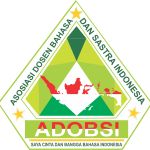Ecocentrism Values in the Pasang Tradition of the Kajang Ethnic Group: A Study of Literary Ecology
Abstract
This article discusses the ecocentrism values in the Pasang tradition of the Kajang ethnic community (Pasang ri Kajang) in South Sulawesi. Garrard Greg's ecocritical approach reveals the relationship between humans and the environment in the Pasang ri Kajang tradition. Data were collected through interviews, literature studies, and text analysis and then analyzed qualitatively. The results of the study indicate that the Kajang ethnic community based on Pasang ri Kajang guides their lives through the principles of kamase-masea (simple living), lambusu (honesty), gettang (firmness), and sabbara na appisona (patient and sincere) in everyday life. Pasang ri Kajang regulates the management and utilization of forests in settlements. Forests by the Kajang ethnic group are divided into three areas: borong karamaka (sacred forest), borong batasayya (border forest), and borong luara' (people's forest). The ecocentric values in Pasang ri Kajang that were found were 1) nature as the center of human life, 2) interdependence of humans with nature, and 3) harmony between humans and nature. These three ecocentrism values emphasize that Pasang ri Kajang can be a source of environmental conservation models based on local wisdom.
References
Azis, S., Zubaidah, S., Mahanal, S., Batoro, J., & Sumitro, SB (2020). Local knowledge of traditional medicinal plants use and education system on their young of ammatoa kajang tribe in south sulawesi, indonesia. Biodiversitas , 21 (9), 3989–4002. https://doi.org/10.13057/biodiv/d210909
Badewi, MH (2018). Environmental ethics in the Kajang tide in the Kajang indigenous community. Citizenship Journal: Media Publication of Pancasila and Citizenship Education , 1 (2), 66. https://doi.org/10.12928/citizenship.v1i2.13619
Catrin Gersdorf and Sylvia Mayer. (2006). Nature In Literary and Cultural Studies Transatlantic Conversations on Ecocritism (Hubert van den Berg (ed.); Catrin Ger).
Disnawati. (2013). Application of the Kamase-Masea Life Principles of the Ammatoa Kajang Indigenous Community, Bulukumba, South Sulawesi in Natural Resource Management. Sabda: Journal of Cultural Studies , 8 (1), 83–90. https://doi.org/10.14710/sabda.v8i1.13257
Dominic, K. V, & Walker, A. (2020). Environmental crises in Kerala, Adelaide, and beyond: a collaborative poetic inquiry. TEXT: Journal of writing and writing courses , 2 (60), 0–21.
Easterlin, N. (2003). Practical Ecocriticism: Literature, Biology, and the environment. Interdisciplinary Literary Studies (Vol. 2, Number 1).
Garrard, G. (2004a). Ecocriticism. In J. Drakakis (Ed.), Routledge (Taylor & F). Routledge. https://doi.org/10.1093/ywcct/mbaa018
Garrard, G. (2004b). Ecocritisim .
Garrard, G. (2012). Teaching ecocriticism and green cultural studies. In Teaching Ecocriticism and Green Cultural Studies . https://doi.org/10.1057/9780230358393
Garrard, G. (2013). Teaching Ecocriticism and Green Studies. Journal of Ecocriticism , 5 (2), 1–19.
Gay, M. (2016). Study of Basic Life Values in Ternate Oral Literature. Gramatika: Scientific Journal of Language and Literature , 4 (1), 40–48. https://doi.org/10.31813/gramatika/4.1. 2016.43.40--48
Gising, B. (2011). Symbolism in the oral tradition of Pasang Ri Kajang: A Semiotic Review. Linguistic and Literary Studies , 23 (2), 139–148.
Huggan, G., & Tiffin, H. (2010). Postcolonial Ecocriticism: Literature, Animals, Environment. In Routledge (I). Routledge. https://doi.org/10.4324/9781315768342
Jane, G. (2024, November). Mass Extinction Is Happening. BBC London , 1.
Reskiani, MIU, Indah, AL, & Djafar, Andi Nurul Ainun Fitri Makmur, EM (2021). Pasang ri Kajang: Oral Tradition of the Ammatoa Indigenous Community of the Kajang Tribe in the Formation of Conservation Character. Ideas: Journal of Education, Social, and Culture , 7 ( 4), 133–142. https://doi.org/10.32884/ideas.v7i4.495
Sharrad, P. (2012). Postcolonial ecologies: Literatures of the environment. In Journal of Postcolonial Writing (Vol. 48, Number 2). https://doi.org/10.1080/17449855.2011.639940
Siti Masitoh. (2017). The Role of Cultural Literacy in Oral Literature. Bibliotika: Journal of Library and Information Studies , 53–59.
Sitti Rabiatul Wahdaniyah Herman, & Supriadi Takwim. (2022). Kamase-Mase Philosophy of the Kajang Tribe in the Implementation of Spatial Utilization Control Policy Governance. Rausyan Fikr: Journal of Ushuluddin and Philosophy Studies , 18 (2), 323–350. https://doi.org/10.24239/rsy.v18i2.1176
Sugiarti, Eggy Fajar Andalas, Ekarini S, KT (2019). Cultural Ecology: Ecological Studies in the Framework of Interdisciplinary Literature Studies. In Muhammadiyah University of Malang (1 ed., pp. 1–124). Muhammadiyah University of Malang.
Talib, J, & Nurhayati, N, Harlinah Sahib, SB (2023). Human Manifestation in Kelong Basing of the Kajang Tribe: A Study of Literary Ecology. Proceedings of the International Congress of the Indonesian Linguistic Society , 301–308. https://doi.org/https://doi.org/10.51817/kimli.v2023i.130
Talib, Jihad, . N., Sahib, H., & Badarudin, S. (2023). Human Life Represented in Kelong Basing Tribe Kajang. International Journal of Membrane Science and Technology , 10 (4), 434–441. https://doi.org/10.15379/ijmst.v10i4.2061
Vasiliades, M.A., Hadjichambis, A.C., Paraskeva-Hadjichambi, D., Adamou, A., & Georgiou, Y. (2021). A systematic literature review on the participation aspects of environmental and nature-based citizen science initiatives. Sustainability (Switzerland) , 13 (13), 1–27. https://doi.org/10.3390/su13137457
Wangke, H. (2021). International Cooperation to Address Climate Change. Brief Info: A Brief Review of Current and Strategic Issues , 13 (15), 1–6.
Yanti, I., & Hamid, I. (2023). Anthropocentric Behavior of the Community Towards the River Environment in Lupak Dalam Village, Kapuas Kuala District, Kapuas Regency. Huma: Journal of Sociology , 2 (1), 95–105. https://doi.org/10.1007/s11333-01-01. org/10.20527/h-js.v2i1.42
Zulfa, AN (2021). Ecocriticism Theory: A Study of the Emergence of the Ecological Approach Proposed by Cheryll Glotfelty. LAKON: Journal of Literature and Culture Studies 2021 , 10 (1), 59–63. https://doi.org/10.20473/lakon.v10i1.20198

This work is licensed under a Creative Commons Attribution-ShareAlike 4.0 International License.
Authors who publish with Jurnal Ilmiah Lingua Idea agree to the following terms:
- Authors retain copyright and grant the journal right of first publication with the work simultaneously licensed under a Creative Commons Attribution License (CC BY-SA 4.0) that allows others to share the work with an acknowledgment of the work's authorship and initial publication in this journal.
- Authors are able to enter into separate, additional contractual arrangements for the non-exclusive distribution of the journal's published version of the work (e.g., post it to an institutional repository or publish it in a book), with an acknowledgment of its initial publication in this journal.
- Authors are permitted and encouraged to post their work online (e.g., in institutional repositories or on their website) prior to and during the submission process, as it can lead to productive exchanges, as well as earlier and greater citation of published work.





















.png)




_.png)


